“Life is pleasant. Death is peaceful. It’s the transition that’s troublesome.”
Death kills just once. But the fear of death kills every moment. When I was young, I saw people, young and old, dying around me. But the reality of my own death never struck me. As I grew up, a frightening sense of the inevitability of death entered into my soul. A thousand times in the dead of nights, I felt the chilling embrace of death and woke up screaming in fright and trembling like an aspen leaf. It was madding. I wanted to run away from death. As many, I tried to believe that I would live for ever. Then slowly in sank into to me that there was no getting away from the icy touch of death.
But, as time passed, my understanding improved and outlooks shifted. My death fears gradually receded. I accepted the reality that death is the sole exit route from life for all. Fear or no fear, there is no escape. I also realized that death is also a great leveller. It does not discriminate. It touches every living being. After all, I am not alone in this ultimate exit. I tell myself, “You are just one of the seven billion odd people who now occupy this earth and would die in the next one hundred years. The billions that came before you had died and the billions that would come after you would die. So why fear death?” Such reasoning should extinguish the fires of death fears burning in the heart of every thinking person. But in reality, it does not. Even a hundred year old person on a ventilator would suffer anything to live. So, even when I accept the inevitability of death and the logic of being consoled by the acceptance of this reality, death thoughts simply do not cease to haunt me.
If I go by the current statistics on average life expectancy, I should still have a few more years left before the church bells toll for me. But do people live or die based on the logic of averages? As I read somewhere, if we adopt the logic of averages, a human being would have just one breast and one testicle on an average! Also, if I stand with one leg in a bucket of burning coal and the other in a bucket of freezing ice, I should be comfortable on an average! No wonder some Wise Statesman once said that there were three types of lies, “Lies – damn lies – and statistics”. So the fig leaf of increasing average life expectancy does not offer me any comfort. Does religion help? Let us see.
“Religion is the sigh of the oppressed creature, the heart of a heartless world, and the soul of soulless conditions. It is the opium of the people”, said Karl Marx. I do not believe in Marxism. Yet, considering the way faith is peddled these days, one cannot help believing that religion is turning into a drug that takes the faithful to the realms of delusions. And, essentially all faiths flourish on the mystery of what happens beyond death. What happens beyond death. Where do people go after they die (if they go anywhere at all)?
In spite of all the amazing science and technology advancements that man has made, what happens beyond death remains wrapped in deep mystery. While this mystery is painful for the plain citizen, it is a goldmine for the religions. Religions exist and thrive almost entirely on the strength of the afterlife mystery. If and when this mystery is unravelled, religions would collapse, close shop and flee for dear life. But the bewildering reality is that even religions do not seem to have much idea about where the dead go. Nevertheless, religions do have their theories.
The two predominant theories on life after death are the one-life theory and the multi-life theory. One-life theory teaches that each person has just one life on earth. After death, the person would be assessed and judged based on his earthly life. The judge does not bother whether the person lived a single day or a hundred years. The judge picks up one option from the two available. The ‘dead’ goes either to heaven to live in unending bliss or to hell to live in unceasing suffering. It is as simple as that. There is nothing in between. The multi-life theory, on the other hand, says that birth and death of a being is only one segment of a chain of the being’s infinite lives. After death, a human being is reborn into another existence and thus would have many chances to have a go at life in some form. Christianity believes in one-life theory while Hinduism and Buddhism hold multi-life theory.
I am a Christian. I do not intend to change my faith. I say this not because I believe that Christian faith is the sole route to salvation. I do not hold such a view. Consequently I do not subscribe to the idea that religious conversions would open the road to salvation. Ethical living does not need any particular religious label. That apart, as a Christian, I am expected to believe in the one-life theory. But I do have some difficulties with the theory. I feel that the one-life theory makes people look like batsmen in a limited overs cricket match. If you are out, even on the first ball you face, you are irremediably out. It is possible that given another chance you would score a century. But there are no second chances. The same way, the one-life theory too does not offer a second chance.
I have serious doubts about the fairness of one-life theory system. The problem for me is that I cannot believe that a just and loving God, as I gather from the Holy Bible, would proclaim a final judgement on me, based on the solitary opportunity I receive in the form of a single tenure life. Besides, if you are not completely unblemished, you simply burn in hell. Justice just cannot be so unfair and arbitrary. If we implement such a system of justice in the world, the poor child who pinches his classmate and the criminal who kills a dozen people in cold blood would both be sent to the gallows.Or, may be, there is no hell and heaven, after all. Perhaps, hell and heaven are in our minds and on this earth.
I believe that we do not have any logical cause for being disturbed about death and its its aftermath. Death is inevitable. Worrying does not make any difference. What happens beyond death also should not concern us since every religion has its own exclusive views on it. Be reassured that a loving God simply would not cast the entire world population, dead, living and coming into the ever-burning fire an brimstone. Remember, irrespective of the bunkum of some people being addressed ‘His Holiness’ none can remain sinless in this world. This does not mean that we have nothing to worry about life in this world. If, there is one thing I would be disturbed about life is the increasing life expectancy that modern medical science has given us. We often overlook the darker side of this so called medical achievement.
Remember that there was a time not so long ago when people lived more healthily. They had unpolluted air to breathe, uncontaminated water to drink and non-toxic food to eat. They earned their daily bread by the sweat of their brows. They lived a leisurely, straightforward and stress free life in harmony with the nature. Of course, life expectancy was much shorter then since medical science had still not perfected the technique keeping dead men walking. But most people lived without serious health issues until the end. After a brief period of illness, they died at home, surrounded by their loved ones and comforted in the knowledge of the love and care of their families.
But today, life expectancy has risen. We have modern hospitals and medical technologies that help us live longer lives. It all sounds and looks rosy and great on the surface. But there is disquieting ugliness underneath. The reality is that we live longer, not because we are healthier. We live longer, because we have medical systems that can keep us alive even when we are dead for all practical purposes…
The core issue here is that life expectancy at the cost of quality of life often creates extremely tragic situations. Even the perennially sick and clinically dead are kept alive by modern medical systems. This do contribute to better the life-expectancy statistics. Medical service is a highly lucrative business. It is also business area where competition is turning increasingly stiff. As Brice Pitt, emeritus professor of psychiatry of old age says, “A new concern may be…overlong survival, where life draws on without quality and the burden of infirmity falls on the family”. It leads to “a drag on the family’s emotional and financial resources”.
It is this situation that terrifies me this day. I would use the term ‘twilight stage’ to indicate that stage in life of indeterminable length between active life and actual death. The terrors and traumas of the twilight stage of life frightens me, while death does not. At this state, people just vegetate. The tragic helplessness, of the people who so live and of the people Brice who have to look after them is often unfathomably painful. I have seen and experienced it. Such a situation is described by author Mitch Albom in his famous book “Tuesdays with Morrie” which describes the real life story of the author coming to help his former professor afflicted by Amyotrophic Lateral Sclerosis (ALS), “an unforgiving illness of the neurological system”. The professor says on one occasion, “I may be dying. But I am surrounded by loving, caring souls…”. Future generations would miss this comfort – the invaluable comfort of loving, caring souls around their death bed. It happens because people are too busy or too far away. It also happens because modern medicine does not allow people to die easily or quickly.
It is excellently described by in a sermon by Michael Stark. He says, “Today, we place our ill and injured in sterile environments, where cold, gleaming metal and dull plastic embraces them and chills their body even as the flame of life flickers dully. Tubes are inserted into every orifice, and officious technicians draw samples of body fluids as required until the spirit returns to God who gave it. There are none to hold the hand of the dying or to stroke the fevered brow, only the monotonous ritual of probing and poking until the dying are mercifully released by death.” (Michael Stark, New Beginnings Baptist Church, in his sermon, ‘When death has taken my loved one’)
Let me now conclude. While I have been able to reconcile with my fears of death and afterlife, the fear of the twilight stage haunts me. How do we deal with it? Honestly, I do not know… I would only request people to empathize with the aged and the infirm and teach others to do so by setting examples… My prayer today is, “Lord, take my soul into thy hands before I suffer the ignominy of someone else wiping my bottom”.
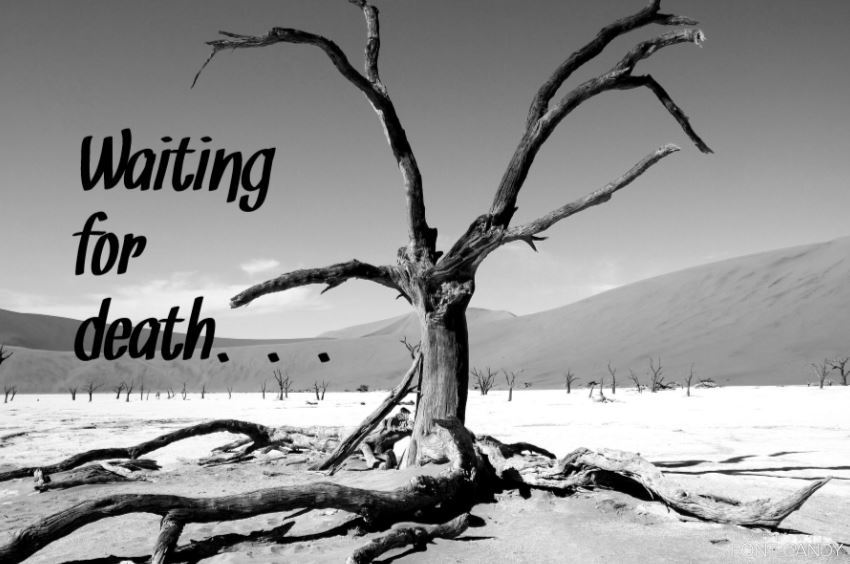

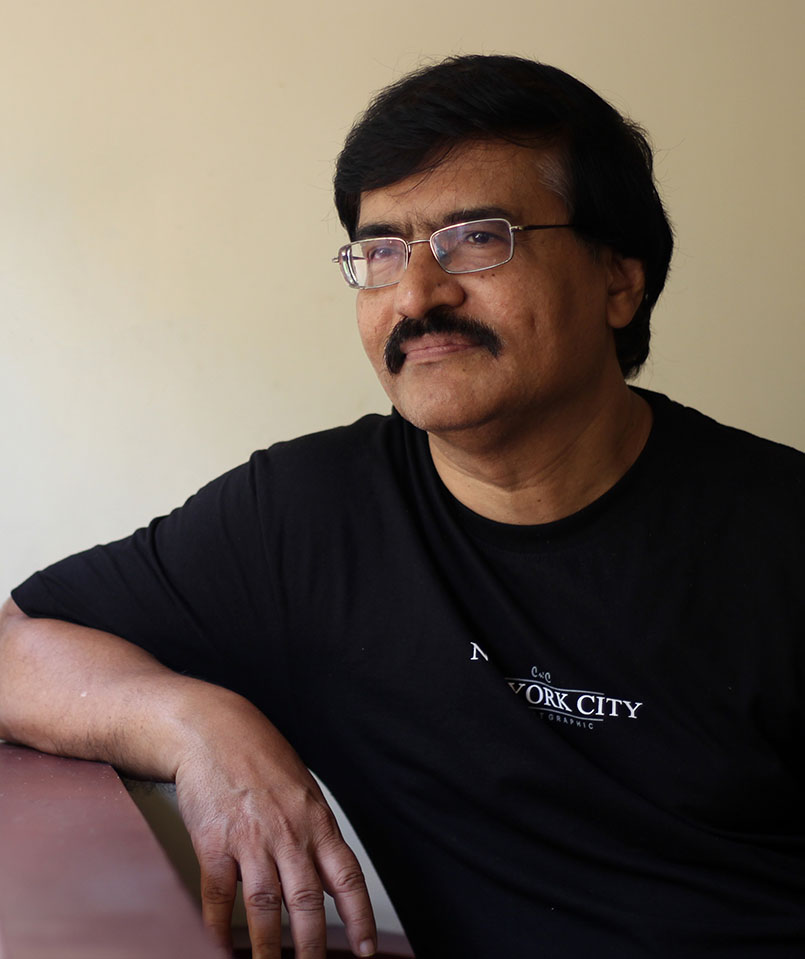
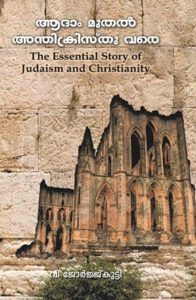
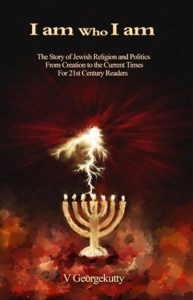
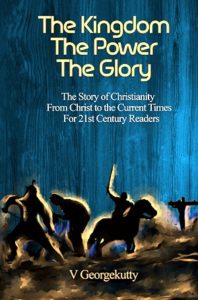
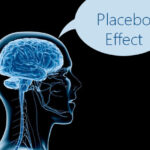


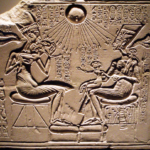

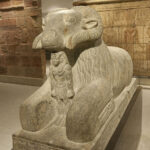

A lively Death is better than a Dead Life! But how many care to live! We are all dying waiting for the ultimate to Happen later than sooner !
Thought provoking post, Sir. adarsh